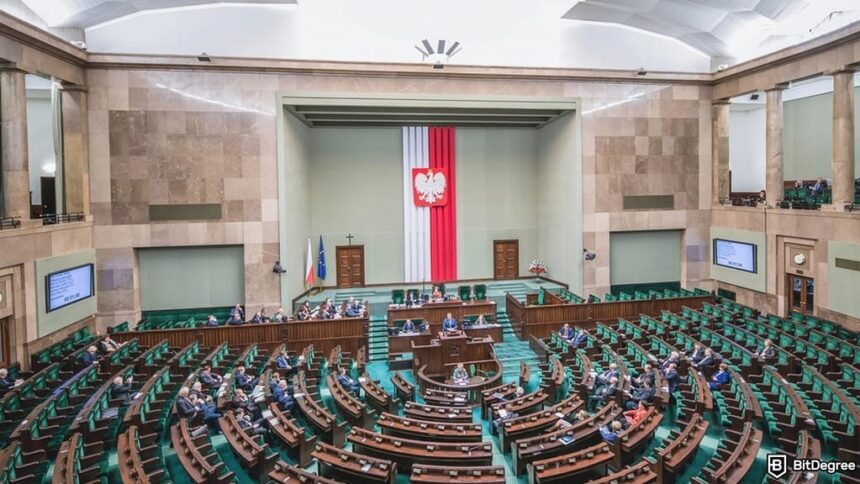Poland’s parliament has taken a step toward regulating digital asset services by approving a new crypto-focused bill.
The proposed law, known as Bill 1424, outlines a licensing system for companies offering crypto-related services and names a financial regulator to oversee the industry.
The legislation passed through the Sejm, Poland’s lower house, and currently awaits review by the Senate. It introduces licensing requirements for crypto exchanges, token issuers, and digital asset custodians.

Did you know?
Subscribe – We publish new crypto explainer videos every week!
What is a Crypto Mining Pool? Is it Worth it? (Beginner-Friendly)

Both Polish and foreign companies are required to apply for official approval from the country’s financial authority, the Komisja Nadzoru Finansowego (KNF), before operating within Poland.
Applicants must provide a detailed description of their organization. This includes financial structure, compliance programs, internal risk controls, and anti-money laundering policies. If the bill becomes law, companies will be given a six-month period to meet these requirements and secure their licenses.
Failing to comply may result in serious consequences. The proposed penalties include fines of up to 10 million zlotys (roughly $2.8 million) and prison terms of up to two years for those operating without a license.
While the government said the law is meant to align Poland’s rules with EU standards under the Markets in Crypto-Assets Regulation (MiCA), Janusz Kowalski warned that it could negatively affect the country’s crypto industry, which reportedly includes about three million users.
Recently, Australia announced plans to introduce new rules to oversee companies involved with digital assets. What do the rules include? Read the full story.










